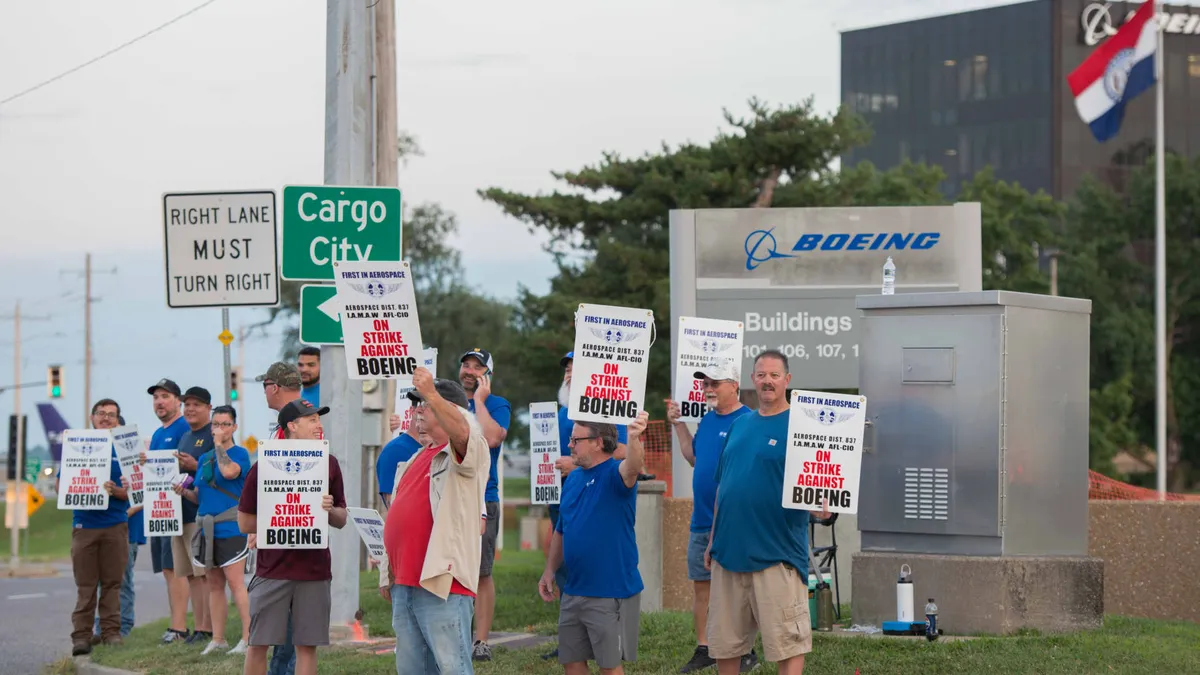
The union representing the striking Boeing defense workers announced on Wednesday that it has successfully negotiated a tentative agreement with the aerospace giant. This landmark agreement, which is set to span five years, promises better wages and reinstates a signing bonus for the employees, as confirmed by the International Association of Machinists and Aerospace Workers Union.
Union members, primarily located in St. Louis, Missouri, are scheduled to cast their votes on this tentative agreement on Friday morning. While the specific details of the new contract have not yet been disclosed, the anticipation surrounding the vote indicates the significance of this agreement for the workers involved.
The striking employees are crucial to Boeing's operations, as they are responsible for assembling and maintaining the F-15 fighter jets and missile systems. Over 3,000 union members have been on strike since the beginning of August, advocating for better working conditions and fair compensation. Previously, the workers rejected a contract offer that included a substantial 20% wage increase and a $5,000 signing bonus, along with other enhancements.
This strike marks a historic moment, being the first of its kind in nearly 30 years for Boeing’s defense unit. Prior to the strike, Boeing CEO Kelly Ortberg downplayed the potential impact of a walkout, stating, "We'll manage through this. I wouldn't worry too much about the implications of the strike." His comments were made during an earnings call at the end of July.
In response to the ongoing strike, Boeing has recently hired an undisclosed number of new workers to fill positions within its defense unit. This move underscores the company's need to meet demand amidst the labor dispute. The striking defense workers’ situation follows a similar scenario last year, where over 32,000 unionized machinists involved in building commercial aircraft also walked off the job for seven weeks due to failed contract negotiations.
The outcome of the vote this Friday could have significant implications for both the workers and Boeing as they navigate this pivotal moment in labor relations within the aerospace industry.